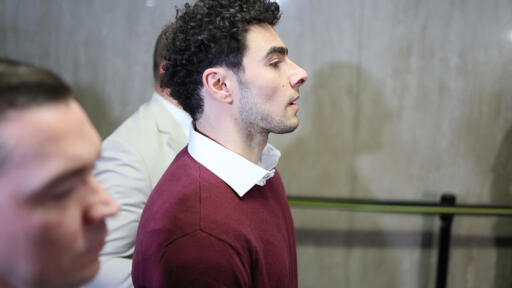The man accused of gunning down a health insurance executive in a brazen hit in New York that sparked fierce debate about the industry pleaded not guilty Monday to state charges including “terrorist” murder.
Monday’s hearing came after Mangione, 26, appeared in a New York court last week to face federal charges also including murder following his dramatic extradition by plane and helicopter from Pennsylvania, where he was arrested at a McDonald’s restaurant. The suspect is charged in both state and federal court in the December 4 shooting of UnitedHealthcare chief executive Brian Thompson.
People demonstrating against the industry gathered outside court Monday brandishing banners reading “free Luigi” and “innocent until proven guilty.”
If convicted in the state case, Mangione could face life imprisonment with no parole. In the federal case, he could technically face the death penalty.
Mangioni’s attorney Karen Friedman Agnifilo has previously sought clarity on how simultaneous federal and state charges would work, calling the situation “highly unusual.”
Agnifilo raised concerns on Monday that Mangione could not receive a fair trial, and questioned why New York mayor Eric Adams had been present when Mangione was brought off a police helicopter at a Manhattan helipad last week. Aginifilo told local media Monday that officials “are treating him like he is like some sort of political fodder.” She said the sight of Mangione flanked by rifle-wielding tactical officers during the final stage of his extradition that was widely broadcast was “utterly political.”



Even if the politics doesn’t change, enough CEOs getting cast into Hell sure might do the trick. People say that it won’t change how companies operate, but I disagree. First, changing CEOs isn’t easy for a company. The sudden loss of one is disruptive, and it means they can’t implement whatever plans they had for the company. A company with repeated CEO murders is one that will be thrown into chaos. Second, regardless of what shareholders might want, CEOs have to consider their own interests. Even a $10 million salary doesn’t mean much if you’re dead before you can enjoy it.
Third: the next day people were getting approved for procedures they were being denied the day before. This was across all insurance companies. It literally changed how these companies operate (at least in the short term) and likely saved lives.
Source? The next day seems way too fast to take effect. It’s not like this guy was sending emails directly saying “deny all claims today” even if he is a driving factor for it.
The share value of UHC fell hard after the murder. That is the thing that really makes waves. As you say, losing CEO is costly, to investors and owners, which in the end is what matters most to the owner classes.
(edit typo)